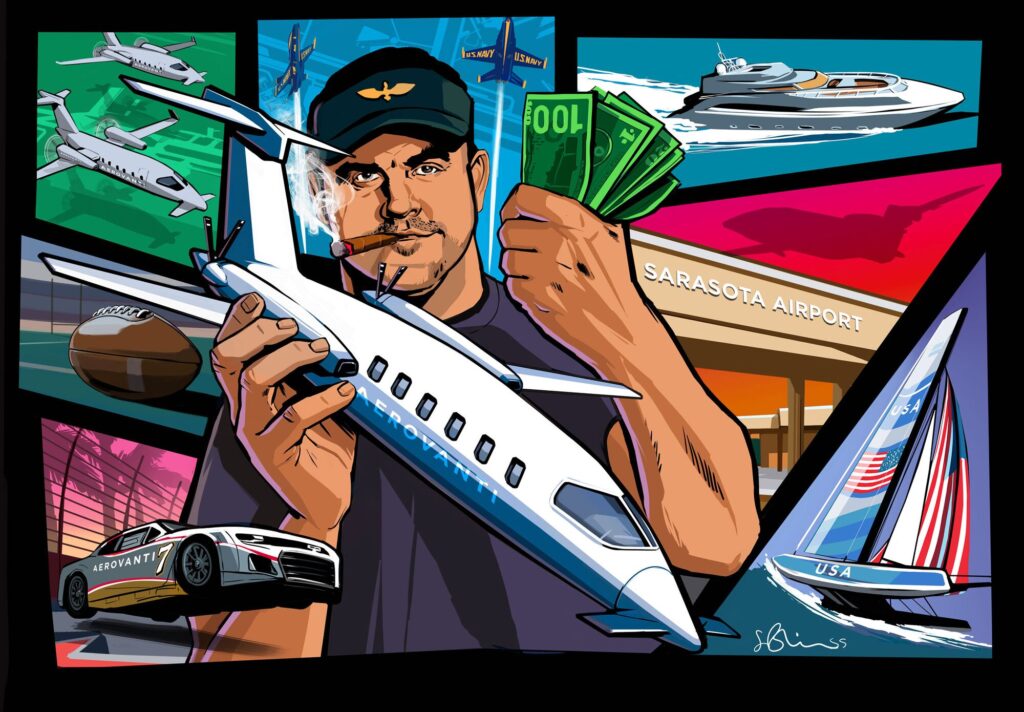After two decades in aviation, including service in the US Air Force flying AC-130 gunships and UH-1N Hueys, Daniel Marchick joined AeroVanti, a private jet startup in Sarasota, Florida. Transitioning from piloting to a desk job, Marchick was tasked with coordinating plane schedules—a role crucial in the intricate ballet of aviation operations. The industry demands precision and collaboration among pilots, mechanics, fuel suppliers, air traffic controllers, and schedulers. Any misstep can unravel the entire system, leaving no space for innocent mistakes and certainly none for deliberate deceit.
Marchick’s appointment at AeroVanti, with a salary of $100,000 per year, marked his entry into the civilian sector. He embraced the opportunity with enthusiasm. AeroVanti, under founder Patrick Britton-Harr’s vision, presented itself as an emblematic American disruptor poised to revolutionize private aviation. Britton-Harr proclaimed the company’s mission in 2021, emphasizing that private flying need not be exorbitantly priced. Their model aimed for cost efficiency through collective membership: the more members, the lower the costs.
For just $1,000 per month plus $1,500 per flight hour, members enjoyed significant savings compared to the industry norm of nearly $7,000 per hour for similar twin-engine turboprops. Britton-Harr touted this approach as “management light,” offering perks like catering, Wi-Fi, and pet-friendly flights on their leased-to-buy Piaggio P.180 Avantis. The promise extended to round-the-clock customer service, with plans to expand the fleet after enrolling 300 members, transitionin
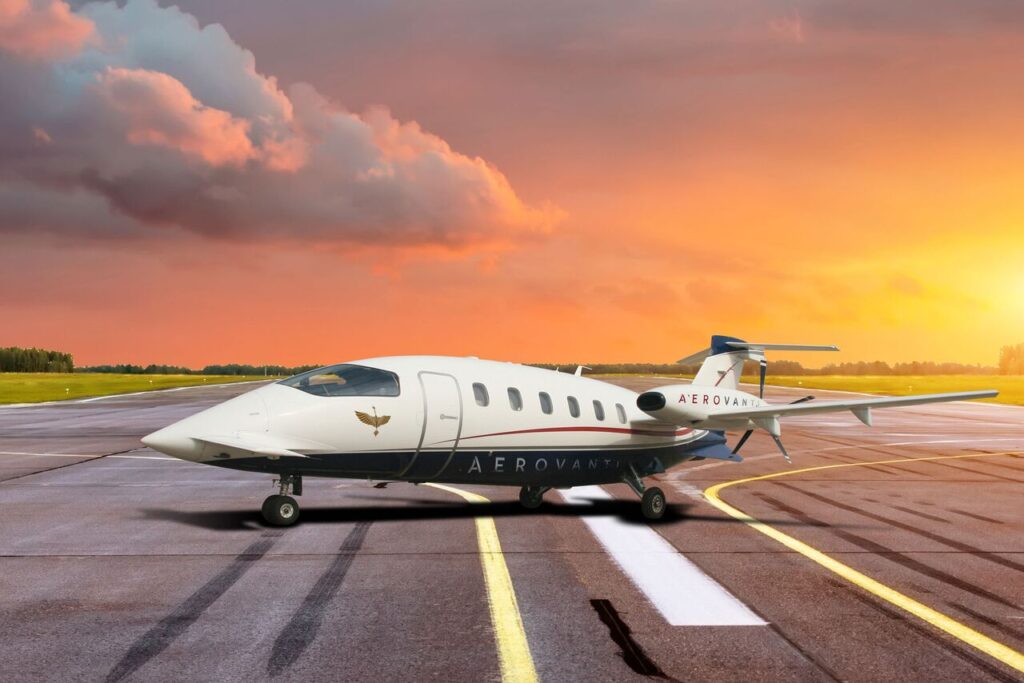
A photo of an AeroVanti aircraft that the company released in 2022, saying it was “in the midst of redefining the entire charter aviation industry.”Source: Business Wire
With twenty years of aviation experience, including service in the US Air Force operating AC-130 gunships and UH-1N Hueys, Daniel Marchick ventured into a new role at AeroVanti, a private jet startup in Sarasota, Florida. Shifting from piloting to desk duties, Marchick assumed the critical responsibility of coordinating plane schedules, an integral aspect of the intricate dance of aviation operations. In this industry, precision and collaboration among pilots, mechanics, fuel suppliers, air traffic controllers, and schedulers are paramount. The slightest error can disrupt the entire system, leaving no room for innocent mistakes, let alone deliberate deceit.
Marchick’s appointment at AeroVanti, with an annual salary of $100,000, signified his transition to the civilian sector, a move he embraced with enthusiasm. Under founder Patrick Britton-Harr’s leadership, AeroVanti positioned itself as an emblematic American disruptor poised to transform private aviation. Britton-Harr articulated the company’s vision in 2021, stressing that private flying should not be prohibitively expensive. Their model aimed for cost efficiency through collective membership: the more members, the lower the costs.
For just $1,000 per month plus $1,500 per flight hour, members enjoyed substantial savings compared to the industry standard of nearly $7,000 per hour for similar twin-engine turboprops. Britton-Harr promoted this approach as “management light,” offering amenities such as catering, Wi-Fi, and pet-friendly flights on their leased-to-buy Piaggio P.180 Avantis. The commitment extended to round-the-clock customer service, with plans to expand the fleet upon reaching 300 members and transitioning to a referral-based membership system thereafter.
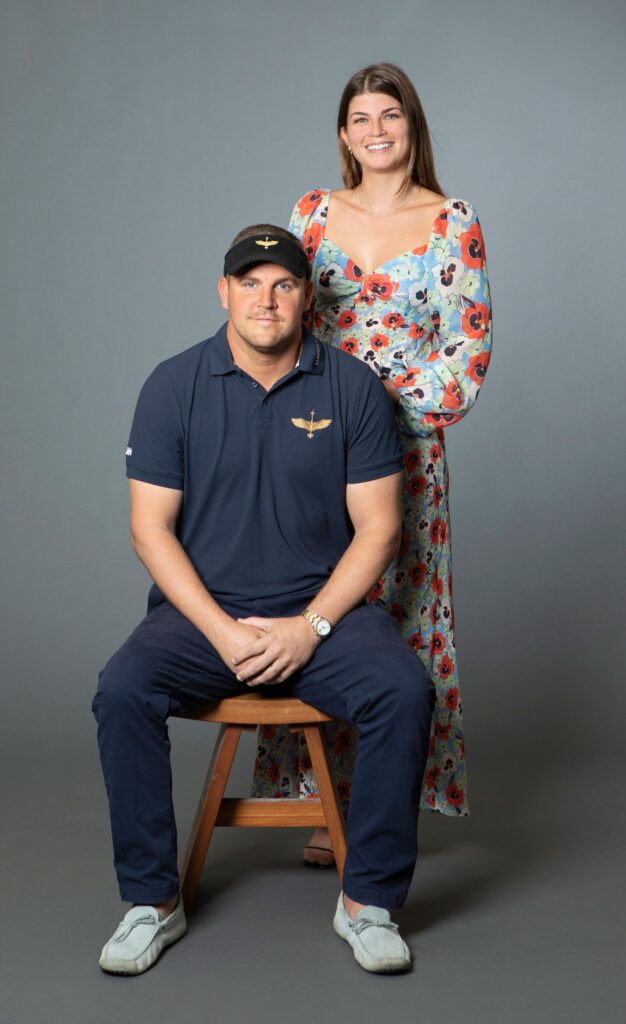
Britton-Harr photographed with his wife, Tracy Deckman, for Business Observer’s 40 Under 40 Issue in 2022.Photographer: Mark Wemple
Upon joining AeroVanti, a private jet startup in Sarasota, Florida, Daniel Marchick, with twenty years of aviation experience including service in the US Air Force, transitioned from piloting to coordinating plane schedules—a pivotal role in the aviation realm’s intricate operations. Aviation enterprises demand meticulous collaboration among pilots, mechanics, fuel suppliers, air traffic controllers, and schedulers, leaving no margin for errors, whether innocent or deliberate.
Marchick’s enthusiasm for AeroVanti was initially buoyed by the competence and enthusiasm of the Sarasota team. With seasoned personnel like Steve Harr, boasting decades of flight experience, and investments totaling approximately $110 million, the company appeared poised for success. Rapid growth characterized its inaugural year, witnessing over 300 members and $20 million in revenue, as reported by Britton-Harr, the founder. Notably, twenty members enrolled in the exclusive “Top Gun” tier, offering priority booking and additional privileges for a lump sum of $150,000.
However, signs of trouble soon emerged. Customers encountered frequent last-minute flight cancellations, attributed by the company to vague mechanical issues or “supply chain” problems. Stranded clients voiced grievances over missed events and abrupt itinerary changes, expressing dissatisfaction with the service’s deviation from promised luxury. The discontentment rippled through email chains and online forums, with some likening AeroVanti’s practices to those of notorious financial fraudster Bernie Madoff.
Subsequently, AeroVanti spiraled into turmoil, grappling with multiple lawsuits from dissatisfied members and aircraft leasers. Reports from numerous employees and associates detailed a litany of abusive conduct and financial malpractice. The Federal Aviation Administration and the US Department of Justice launched investigations, with allegations of misappropriating $40 million of members’ funds leveled against Britton-Harr.
Against the backdrop of the highly regulated commercial airline industry, private aviation has historically been likened to the Wild West, characterized by minimal oversight and instances of misconduct. While instances of fraud and mismanagement have surfaced previously, AeroVanti’s debacle stands out as a grave anomaly, drawing widespread attention and condemnation within the aviation community.
Britton-Harr’s entrepreneurial prowess, showcased in previous ventures, fueled AeroVanti’s early success. Despite initial satisfaction among some members, operational deficiencies soon became apparent, with insufficient aircraft availability and routine flight cancellations causing widespread dissatisfaction. The relentless pursuit of revenue, at the expense of safety and service quality, underscored the company’s descent into chaos, culminating in Britton-Harr’s unchecked authoritarian control and the erosion of employee morale and operational integrity.
As investigations continue and legal battles unfold, AeroVanti’s downfall serves as a cautionary tale within the aviation industry, shedding light on the perils of unchecked ambition and corporate malfeasance in the pursuit of disruptive innovation.
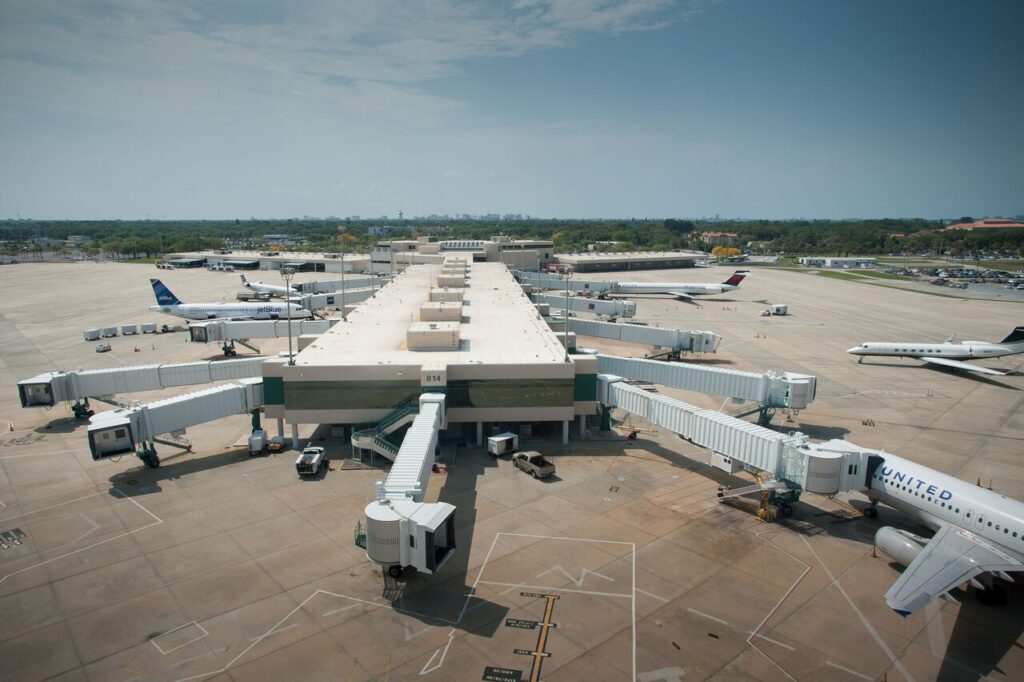
The terminal at Sarasota Bradenton International Airport.Photographer: Sarasota Bradenton International Airport
Britton-Harr was renowned for his extravagant lifestyle, often hosting opulent parties where the champagne flowed freely. Some of these lavish gatherings unfolded within AeroVanti’s Sarasota hangar, while others were held aboard yachts in Fort Lauderdale. Scott Hopes, who briefly assumed the CEO role after Britton-Harr, recalled an event where caviar worth $50,000 adorned the tables.
However, despite the outward appearance of affluence, AeroVanti operated without a company credit card or shared account. Britton-Harr retained sole control over its finances, leaving employees to foot company expenses using personal funds in anticipation of reimbursement. Even Philip Welborn, the senior finance manager for Air Club, AeroVanti’s membership program, lamented having shelled out $58,000 of his own money without compensation.
Trouble surfaced when AeroVanti defaulted on payments, leaving bills unpaid and suppliers in the lurch. Scott Levine, a Florida entrepreneur who leased his LearJet to AeroVanti, found himself embroiled in a financial quagmire when the company defaulted on its contract after just two payments. Despite attempts to seek clarification from Britton-Harr, Levine’s inquiries went unanswered, prompting legal action to repossess his aircraft. In a retaliatory move, AeroVanti canceled Levine’s membership and levied false claims against his plane’s airworthiness. After a protracted legal battle, Levine reclaimed his aircraft, albeit stripped of essential parts.
Public outcry ensued when Levine took to LinkedIn to expose AeroVanti’s malfeasance, prompting threats of legal action from Britton-Harr’s attorney. Ultimately, Levine pursued legal recourse, securing a $2 million default judgment against Britton-Harr. Other aircraft lessors followed suit, repossessing planes from AeroVanti in response to mounting grievances.
Despite these tumultuous behind-the-scenes events, AeroVanti projected an image of expansion during its second year. A purported $10 million venture capital infusion and acquisitions, including the purchase of Arizona-based aviation firm Marjet, bolstered its facade of growth and ambition. Embracing a strategy of “vertical integration,” AeroVanti sought to internalize all operations, from flight services to maintenance, to enhance efficiency and scale rapidly.
Marketing initiatives further burnished AeroVanti’s image, with multimillion-dollar sponsorship deals inked with prominent sports teams and events, including the Chicago Cubs, USA Sailing, and the Tampa Bay Buccaneers. The company’s philanthropic endeavors, such as hosting events with the Blue Angels Foundation and facilitating heartwarming reunions for low-income families, aimed to cultivate a positive public perception amidst mounting internal turmoil.
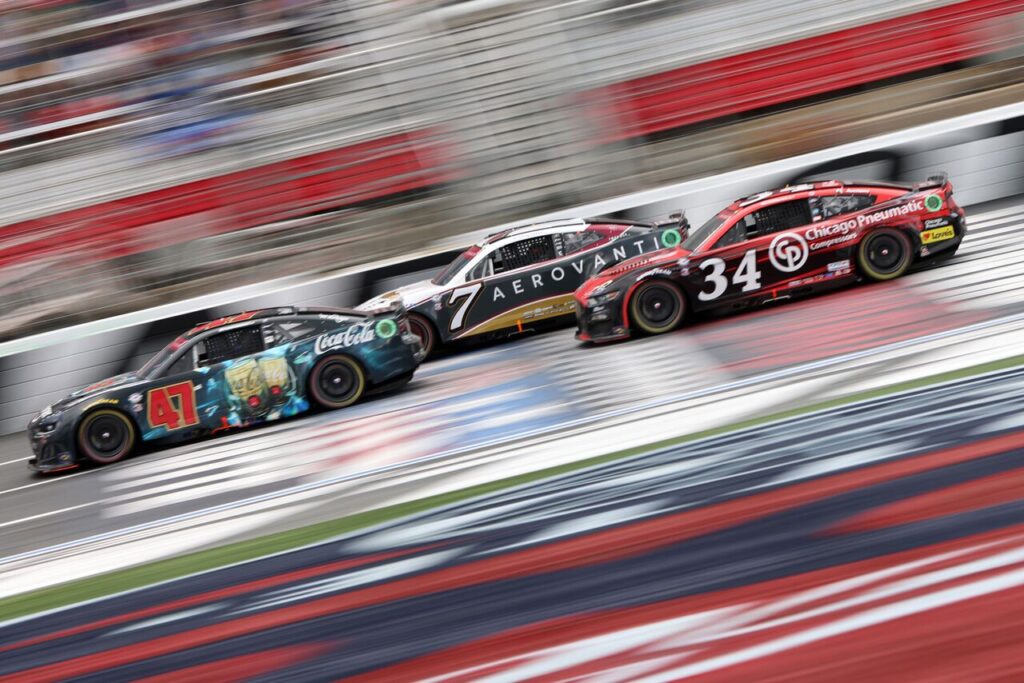
AeroVanti’s car at the Coca-Cola 600 in North Carolina last May.Photographer: David Jensen/Getty Images
AeroVanti ventured into new territory by launching the AeroVanti Yacht Club, requiring a hefty $100,000 deposit. Managed by Liam Harr, Britton-Harr’s younger half-brother, an accomplished sailor with elite connections, the club boasted remarkable vessels like the 108-foot Casino Royale, famously featured as the villain’s floating lair in a James Bond film.
Despite these outward displays of luxury, AeroVanti grappled with internal financial woes. Employees reported delays and, eventually, non-payment of salaries. In late 2022, paychecks arrived late or not at all, and the company switched to wire transfers after its payroll provider, ADP, cut ties due to unpaid bills.
Pilots faced similar issues, transitioning from hourly rates to a flat monthly salary of $12,000, only to experience further delays in payment. Discontent grew when a pilot, urged by Britton-Harr despite warnings, crashed a plane carrying New Orleans Saints kicker Wil Lutz in Destin, Florida. Despite mechanical issues cited by the pilot, AeroVanti couldn’t confirm any faults.
In June 2023, AeroVanti’s Vice President for Operations announced a complete halt in compensation, assuring employees that the company awaited capital infusion to resume operations. Confusion reigned among employees and members alike. Despite recent capital announcements, including a purported $100 million raise, revelations emerged that Lafayette Aircraft Leasing LLC, the alleged lead investor, never provided funds.
Legal troubles compounded AeroVanti’s woes as lawsuits mounted, including claims from Top Gun members alleging misappropriation of funds and cancellations without cause. Britton-Harr’s response was dismissive, branding the plaintiffs as opportunists and vowing to press forward despite mounting opposition.
As external scrutiny intensified, FAA investigations and ramp checks hinted at regulatory concerns and member complaints. Britton-Harr’s growing paranoia stifled internal communications, culminating in an order to cease Slack usage amid fears of federal scrutiny. Meanwhile, a Department of Justice complaint against Britton-Harr for Medicare fraud cast a shadow over AeroVanti’s operations.
Britton-Harr’s exit further fueled uncertainty. Evictions, legal judgments, and financial irregularities underscored his tumultuous leadership. Despite attempts to revive the company under new leadership, allegations of mismanagement and personal gain persist. As AeroVanti navigates its turbulent waters, members and employees await clarity amidst a sea of uncertainty.

